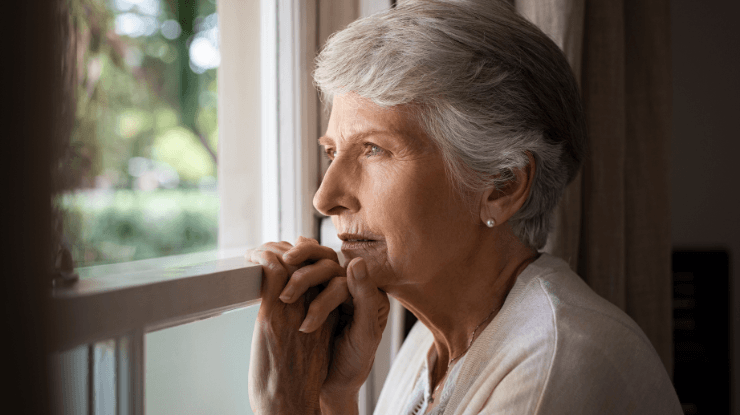Loneliness in seniors is a pervasive problem that can lead to negative effects on their mental health and overall well-being. According to research, nearly one-third of seniors experience loneliness and isolation, leading to a host of emotional and physical issues. In this blog, we’ll discuss the effects of loneliness and provide insights on how in-home senior care with A Place At Home can help reduce mental health problems.
Loneliness is a feeling of isolation or disconnection from others. As we age, we may experience the loss of loved ones and physical limitations that can make it difficult to maintain social connections. Seniors may also experience loneliness when they retire or move to a new location where they are unfamiliar with anyone. While loneliness is natural and can be experienced by anyone at any age, research indicates that seniors who experience loneliness are at risk of developing mental health problems.
Mental health issues associated with loneliness in seniors include depression, anxiety, and cognitive decline. Depression is a common problem among seniors who experience loneliness as they may feel lethargic, sad, and have a loss of interest in activities that they once enjoyed. Anxiety is another problem that can develop from loneliness, leading to worries about their health, social interactions, and finances. Cognitive decline is also associated with loneliness as seniors who feel disconnected from others may not engage in activities that stimulate their mind, leading to cognitive decline over time.
In-Home Senior Care
In-home senior care with A Place At Home is a great way to combat loneliness in seniors. By having access to caregivers and companions, seniors can feel more connected to others and have meaningful social interactions. Companion care can help seniors build relationships with caregivers who can provide emotional support and engage in activities with them, leading to a better quality of life. Moreover, A Place At Home provides an opportunity to connect seniors with others who are going through similar experiences, leading to a sense of community that can combat feelings of isolation.
Loneliness in seniors can have negative effects on their mental health and well-being. However, in-home senior care is an effective way to address loneliness in seniors by providing companionship, emotional support, socialization opportunities, and overall assistance in their daily lives. At A Place At Home, we understand the importance of mental health and strive to provide seniors with the support they need to live fulfilling lives.
To learn about current options for in-home care for yourself or a loved one, give us a call at your nearest location or browse our website to discover more about our senior care services. We provide compassionate at-home care services that make it easier and safer for seniors to maintain their independence and continue to live at home.

